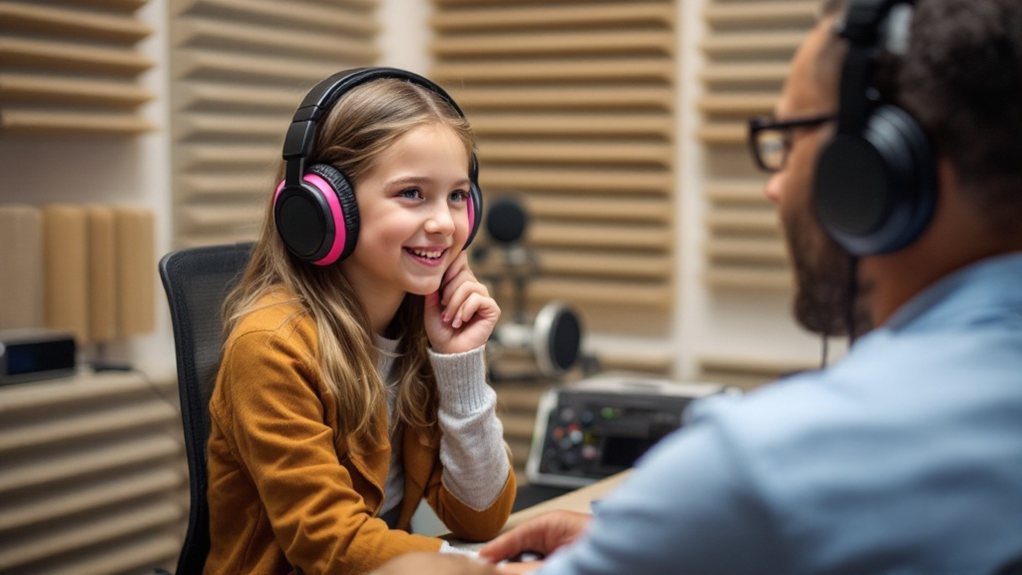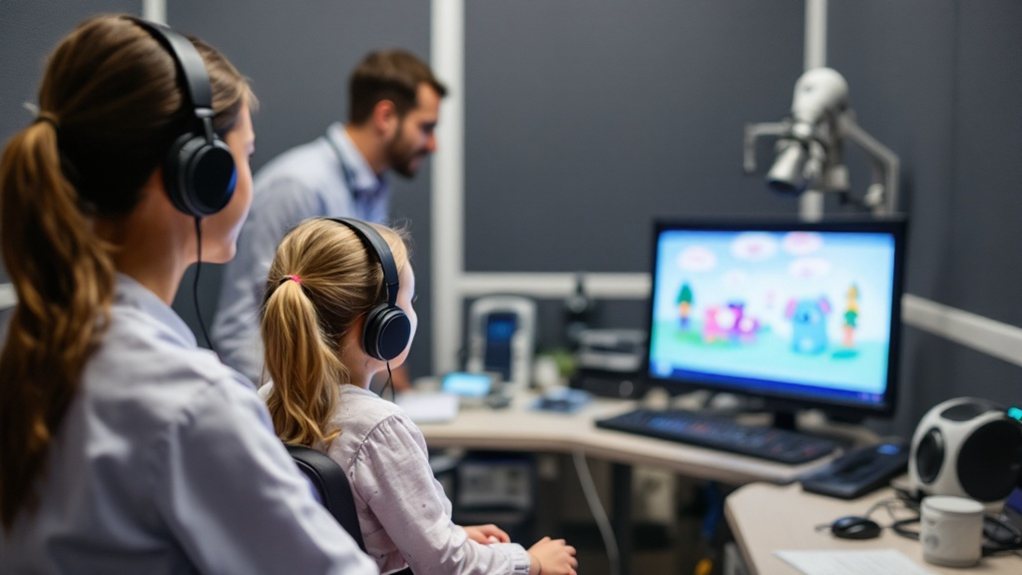Are you looking for Children Hearing Test Park Ridge?
Ready to take the first step towards better hearing?
Let’s talk!
Connect with us today! Fill out the contact form below to schedule your personalised hearing consultation at All Things Hearing. Our expert team is committed to guiding you on your journey to improved hearing health. Don't wait to enhance your quality of life. Reach out now – we're here to listen and help!
Follow us:
Our main hearing clinic is located in Greenbank and our visiting sites are located in Daisy Hill, Jimboomba, Parkinson, and Wishart.
You’re concerned about your child’s hearing, and it’s crucial to address any issues. Hearing plays a significant role in their development, impacting language and social skills. You might’ve noticed signs like lack of response to loud noises or difficulty understanding speech.
At All Things Hearing, we provide hearing services in the area, and a hearing test, which is painless and non-invasive, can identify problems. It’s essential to understand the testing process and potential treatment options, like hearing aids or implants.
As you explore this further with us, you’ll discover more about what to expect and how to support your child’s hearing health.
Why Hearing Matters
Hearing plays a crucial role in a child’s development, and it’s essential you understand its significance. You’ll find that a child’s ability to hear affects their language skills, social interactions, and academic performance. If you’re aware of the importance of hearing, you can take steps to ensure your child’s hearing is developing properly. You should know that hearing loss can impact a child’s ability to communicate effectively, which can lead to feelings of frustration and isolation.
You need to recognize that hearing is closely linked to a child’s cognitive development. As you observe your child, you’ll notice that they use hearing to learn about their environment, develop speech and language skills, and understand social cues. It’s crucial you monitor your child’s hearing and take action if you suspect any issues. You can help your child develop good listening skills by reading to them, engaging in conversations, and reducing background noise. By doing so, you’ll be supporting their overall development and setting them up for success.
Signs of Hearing Loss
As you’re monitoring your child’s development, you’ll want to recognize the signs that may indicate a hearing issue. You’ll notice if your child doesn’t respond to loud noises or can’t locate the source of a sound. They might not react to their name being called or have trouble understanding speech, especially in noisy environments. You might also notice that your child turns up the TV or radio volume too high or has trouble following conversations.
If you’re concerned about your child’s hearing, you should pay attention to their language skills. They might have difficulty with speech development or struggle to pronounce words correctly. You might also notice that your child is having trouble in school or appears to be inattentive. It’s essential to be aware of these signs, as hearing loss can significantly impact a child’s communication and learning abilities. You’ll need to monitor these signs and discuss any concerns with your child’s doctor.
Testing Hearing Problems

In accordance with your child’s doctor’s recommendations, you’ll likely be referred to an audiologist who’ll assess your child’s hearing, taking into account their age, medical history, and overall health. The audiologist will use various tests to determine the extent of your child’s hearing problem. You’ll be asked to provide information about your child’s medical history, including any ear infections or exposure to loud noises.
The audiologist will then perform a series of tests, which may include pure-tone testing, speech testing, or tympanometry. These tests will help the audiologist identify any hearing problems and determine their severity. You’ll be present during the testing, and the audiologist will explain each test and its results to you. The tests are usually painless and non-invasive, and your child may even find them interesting. The results of the tests will help the audiologist develop a plan to address your child’s hearing problems. You’ll work together to find the best solution for your child’s specific needs.
Common Hearing Issues
Your child’s test results will reveal what’s going on with their hearing, and it’s likely that they’ll be diagnosed with one of several common issues. You’ll want to understand what these issues are, so you can better support your child. Common hearing issues in children include conductive hearing loss, sensorineural hearing loss, and mixed hearing loss. Conductive hearing loss occurs when there’s a problem with the way sound waves reach the inner ear, often due to earwax buildup or fluid in the middle ear. Sensorineural hearing loss is related to problems with the inner ear or auditory nerve. Mixed hearing loss is a combination of both conductive and sensorineural hearing loss. You might also discover that your child has a hearing impairment due to a birth defect, infection, or exposure to loud noises. It’s essential to take your child’s test results seriously and seek further evaluation if necessary. By doing so, you’ll be able to address any hearing issues promptly.
Treatment Options Available

Treatment for hearing issues in children can vary greatly depending on the underlying cause, and you’ll work with a doctor to determine the best course of action. You’ll undergo a series of tests to identify the root cause of the issue, and then the doctor will recommend a treatment plan. Depending on the diagnosis, you might need to get your child’s ears cleaned, or they might need antibiotics to clear up an infection.
If your child has a more permanent hearing issue, they might need hearing aids or implants. You’ll need to work with an audiologist to find the right device and get it properly fitted. It’s essential to follow the doctor’s advice and attend all scheduled appointments to ensure the treatment is working effectively. You’ll also need to monitor your child’s progress and report any changes to the doctor. By working together with the doctor, you can help your child overcome their hearing issues and improve their overall quality of life. Regular follow-ups will help you track their progress and make adjustments as needed.
Disclaimer
The content on our site is purely for education and should not be seen as an endorsement or recommendation of any treatments or products without a thorough hearing assessment and evaluation. Before starting any treatment, users should get advice from a professional and be fully aware of any potential side effects or risks related to the procedures. Any products we mention cannot be purchased by the public without first consulting a hearing health expert.
